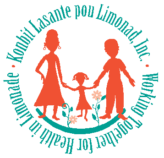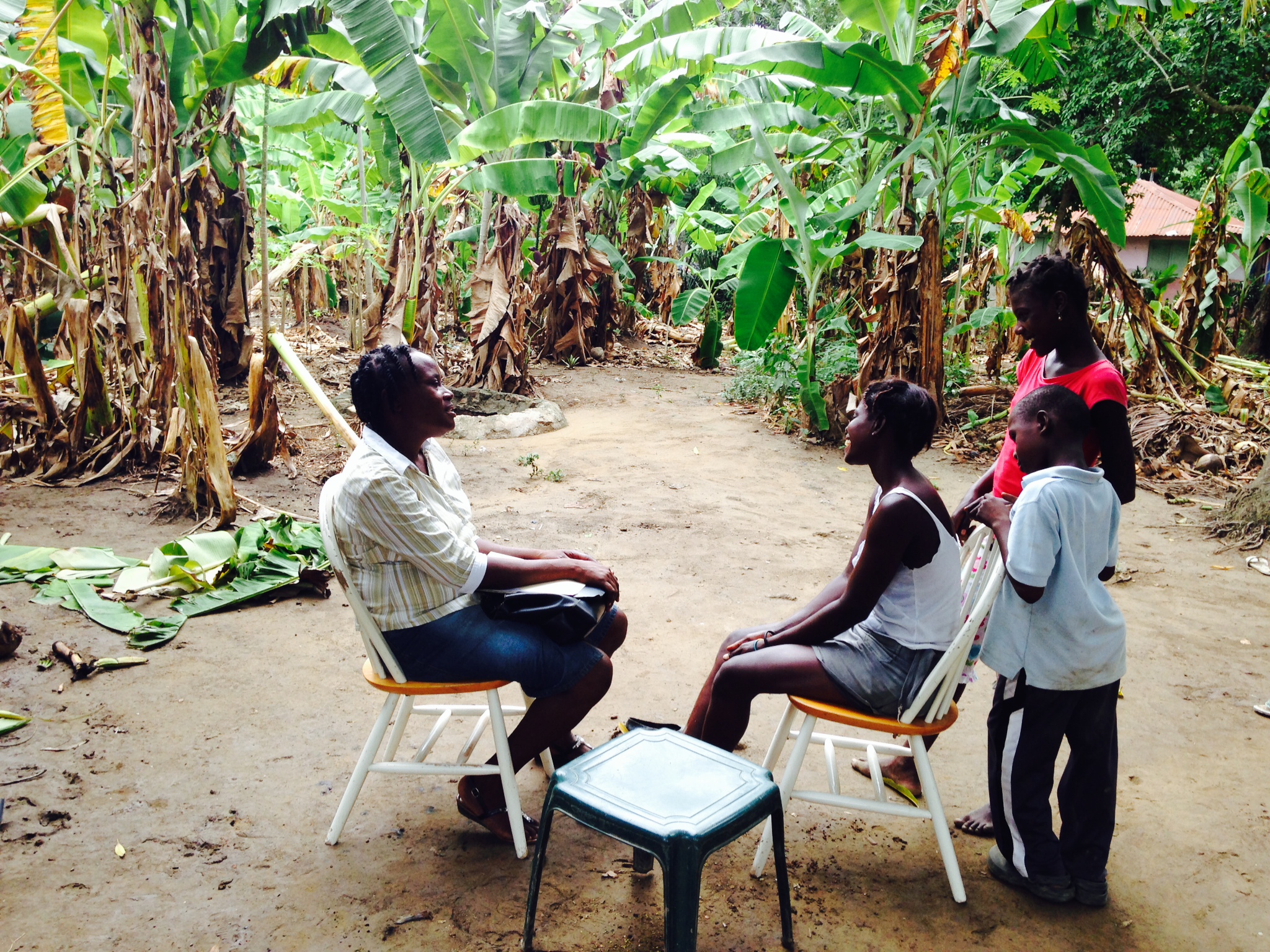Children’s Place International’s Northern Haiti Program Caseworkers
Children’s Place International’s (CPI) caseworkers in Northern Haiti are special people. They come from the communities they serve and understand the backgrounds and challenges of CPI clients. Caseworkers travel to client homes on a bi-weekly basis or as needed, sometimes by foot up into the mountains, sometimes by motorbike into rural areas, and are welcomed upon arrival as honorary members of each family they visit.
Caseworkers meet with several families each day, and their length of stay for a visit depends upon the needs of each family at that time. After greetings, the caseworker and parents or caregivers will discuss the health of family members, medications, and appointments. As a result of ongoing support, HIV-positive clients have been able to adhere to medication regimens and prevent secondary infections, greatly impacting their quality of life and the quality of their family-life. Clients may then engage in discussion on a range of topics addressing the needs and challenges facing their family. Visits with caseworkers provide a positive effect on the mental health of clients as they feel a unique sense of accompaniment through incredible difficulties.
Once the adults have had time to talk, the caseworker engages with the children of the family separately to ask about school and any challenges each child may be having there or at home. These relationships have enabled caseworkers to trouble-shoot school-related issues, such as difficulty getting to school, having supplies, or paying fees and to support the child to address challenges in home-life too. As a result, most CPI program students have been able to keep up daily attendance, complete assignments, and go on to complete both primary and secondary school with the hope of technical or university degrees and the chance to support their families.
Before departing, the caseworkers will share any CPI program updates regarding food distributions, support groups, or afterschool programming. As needed, the caseworker may plan to accompany a client to an upcoming medical appointment. During a hospital stay, the caseworker will visit the client on days family cannot, to be sure they are receiving food, tests, and medications as payment is generally required and CPI keeps an emergency fund in reserve for these occasions.
Each week, the caseworker meets with their regional project team, and has the opportunity to review the progress and challenges of client families, access input and ideas for difficult cases, and plan for monitoring and evaluation exercises. The team provides support and camaraderie to one another, re-energizing members for another week of demanding but gratifying work making a critical impact on the lives of children and families.
In the words of CPI’s caseworker based in the area of Limonad, “Thankfully the clients understand and appreciate my and the team’s work; they feel secured by our presence. My position is very interesting because it brings more hope for the families and me. My job is like a divine mission, I am doing it with compassion and devotion. Thank you to all the ones who have accepted to share their love to bring some hope to the families who are impacted by HIV/AIDS in the community of Limonad.”

